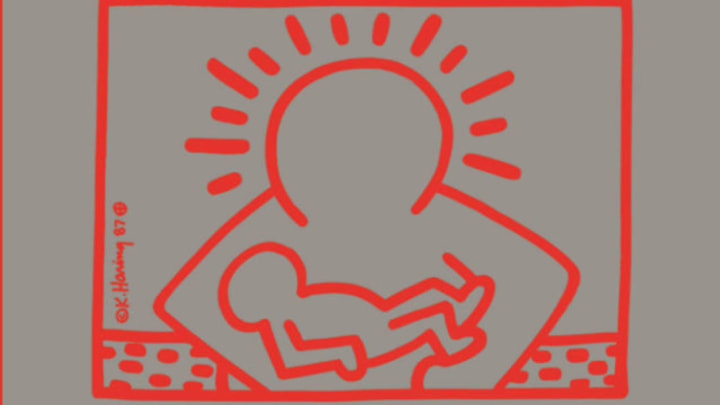Even after moving to Los Angeles to pursue a career in the record business, Jimmy Iovine always came back home to New York to spend holidays with his family. The Iovines loved Christmas, and their annual gatherings were a tradition.
When Iovine returned in the winter of 1984, things were different. This time, he came home to be at his ailing father’s bedside. On January 12, 1985, Vincent Iovine passed away at the age of 63.
A recording engineer who had worked with Bruce Springsteen and John Lennon, Jimmy Iovine feared he’d begin to associate Christmas with his father’s passing—a sense of despair and sadness that seemed contradictory to how he had always enjoyed the season. He decided he’d create a new memory. Less than three years later, in 1987, Iovine’s A Very Special Christmas album debuted.
It wound up being more than just a way of celebrating his dad, who loved the holidays: Iovine’s work would eventually raise more than $100 million for the Special Olympics.
Jimmy Iovine (second from right) with the record he produced for his father. Special Olympics
Benefiting the organization—which was founded by Eunice Kennedy Shriver in 1968 as a way for athletes with intellectual disabilities to participate in competitive sports—turned out to be a consequence of recording industry politics. Iovine was a major force in the business, but all his goodwill equity didn’t mean much when he began to solicit artists signed to different labels. Record companies were reluctant to “lend” talent out. The only practical way for Iovine to pursue his goal was to take money out of the equation: No one involved would make a dime.
It was Iovine’s wife, Vicki, who suggested the Special Olympics be the beneficiary. Vicki was a volunteer for the organization and knew Bobby Shriver, Eunice’s oldest son. Shriver and Iovine met with Jerry Moss of A&M Records and convinced him to cover the $250,000 in production and studio fees. Moss agreed.
Iovine’s next thought was to call Quincy Jones, who had produced the 1985 single “We Are the World” with an all-star group of artists. Jones was apparently stressed by the experience, and told Iovine he’d never clear the logistical hurdles. It was one thing for musicians to agree to do it; getting them all together in the studio was another matter.
Iovine, however, was determined. After Springsteen called to offer condolences, he was able to get the singer to contribute an unused B-side single, “Merry Christmas Baby”; he flew to Glasgow to record U2’s rendition of “Christmas (Baby Please Come Home)” while the band was performing a sound check before a concert; John F. Kennedy, Jr. was able to get Madonna for “Santa Baby.” Arnold Schwarzenegger, Shriver’s son-in-law, invited Jon Bon Jovi to participate. A fan of Arnold's movies, the singer agreed.
Iovine pulled every string he could. When he secured eight tracks, he thought it might be enough, but eventually decided to keep going. Run-DMC agreed to perform “Christmas in Hollis.” John Cougar Mellencamp did “I Saw Mommy Kissing Santa Claus,” and promoted the album by telling the Los Angeles Times that he had a disease of the vertebrae as a child and was nearly physically disadvantaged himself.
Iovine eventually gathered 15 tracks. For the cover, Shriver was able to get permission from celebrated artist Keith Haring to share his portrait of a now-familiar maternal stick figure without any licensing fees.
A Very Special Christmas was released on October 12, 1987. Because of Live Aid, “We Are the World,” and other “aid” recordings, the media cautioned that people might be growing tired of charitable music projects. The Special Olympics didn’t know what to expect.
In the end, no amount of real or imagined charitable fatigue mattered. In March 1988, the Special Olympics received a royalty check for $5 million. A Very Special Christmas was a spectacular success, selling over four million copies through 2014 and spawning several sequel albums. It became the biggest benefit recording in the history of music, allowing Shriver’s organization to open satellite programs in Russia, Uganda, and in underprivileged areas of North America.
Iovine—who went on to co-found Interscope Records in 1989 and Beats Electronics with Dr. Dre in 2008—was pleased with the donation, but the project remained a love letter to his father. He left the series in the hands of others following the release of the second album in 1992.
"The only thing I know how to do in life, Bruce,” he once recalled telling Springsteen, “is make music. I'm going to make a Christmas album for my dad."
